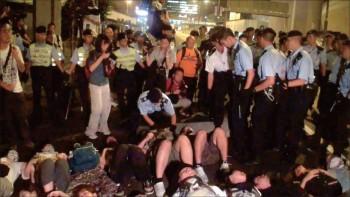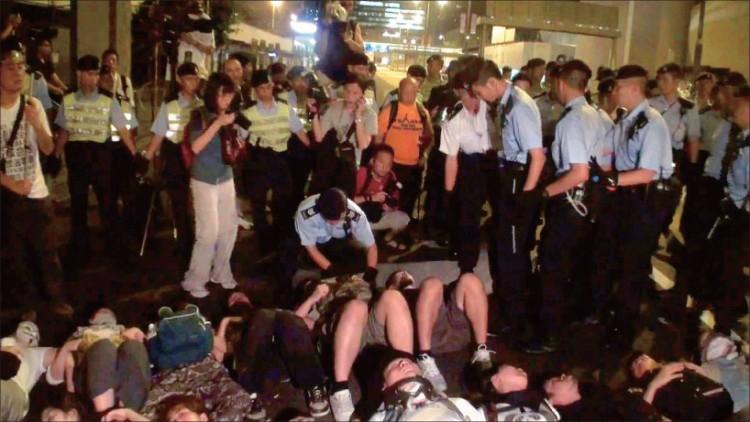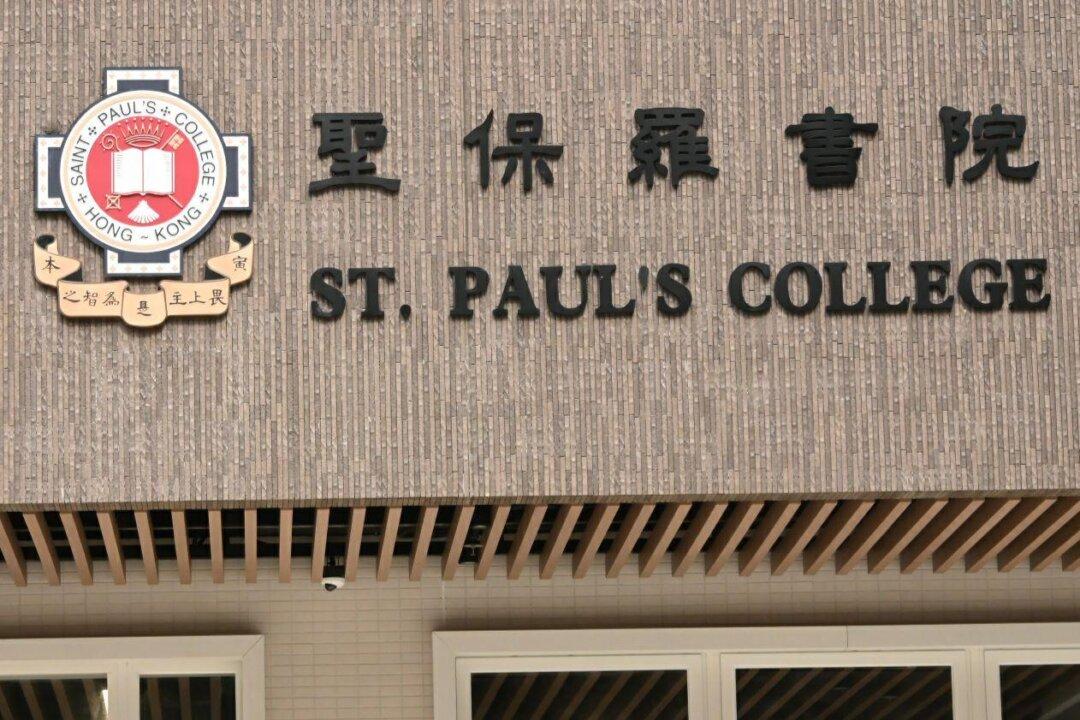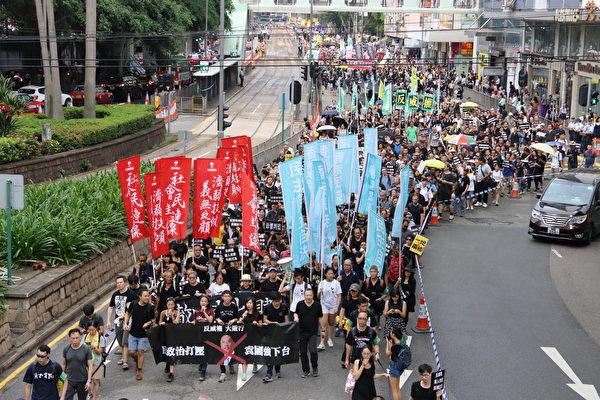Photographer Arrested While Reporting Protest in Hong Kong
A reporter intern for New York-based New Tang Dynasty Television (NTD TV) was arrested while covering a July 1 protest in Hong Kong. Her colleagues are asking whether the police in making the arrest were targeting NTD.

Ms. Cai Wenwen (dressed in dark blouse and white pants and holding a camera), an intern reporter from NTDTV, was arrested by police while photographing a protest in Hong Kong on the night of July 1. Internet Image
|Updated:





